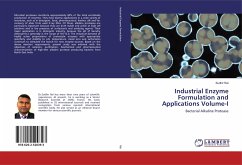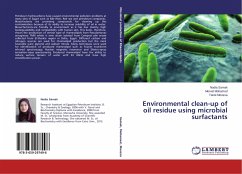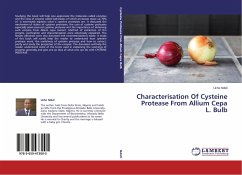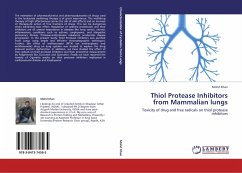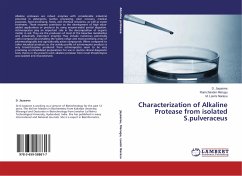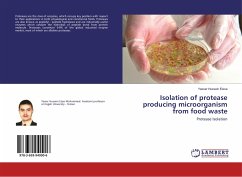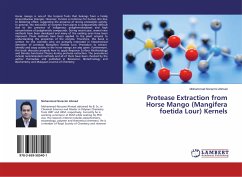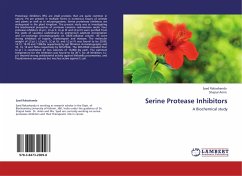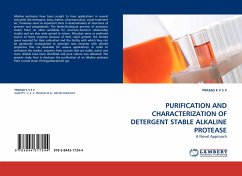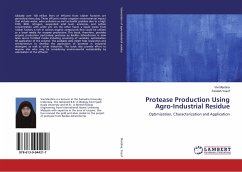
Protease Production Using Agro-Industrial Residue
Optimization, Characterization and Application
Versandkostenfrei!
Versandfertig in 6-10 Tagen
47,99 €
inkl. MwSt.

PAYBACK Punkte
24 °P sammeln!
Globally over 100 million liters of effluent from rubber factories are generated every day. These effluent render negative environmental impact that include water, odor pollution as well as health problem due to a high COD, BOD, nitrogen, suspended solid level, ammonia, and sulfate concentration with acidic pH. On the other hand, a liquid waste from rubber factory is rich in various organic compounds that could be utilized as a basal media for enzyme production. This book, therefore, provides enzyme production particularly protease by Bacillus licheniformis in skim latex serum fortified media ...
Globally over 100 million liters of effluent from rubber factories are generated every day. These effluent render negative environmental impact that include water, odor pollution as well as health problem due to a high COD, BOD, nitrogen, suspended solid level, ammonia, and sulfate concentration with acidic pH. On the other hand, a liquid waste from rubber factory is rich in various organic compounds that could be utilized as a basal media for enzyme production. This book, therefore, provides enzyme production particularly protease by Bacillus licheniformis in skim latex serum fortified media including screening of variables, optimization till application of the enzyme. The available data might help researches and entrepreneurs to develop the application of protease in industrial detergent as well as other industries. This book also provide effort to anyone else who may be considering environmental sustainability by valorization of the effluent.



